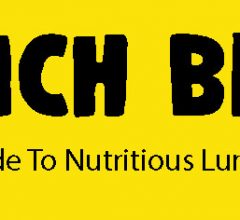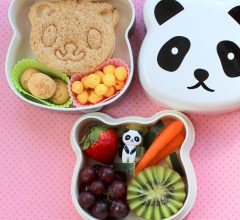What is Sugar?
It is one of the three components of the macro nutrient, Carbohydrate (the other two are Fibre and Starch). Carbohydrates are needed to sustain life as they are the main energy source for our body. Carbohydrates are found in a variety of everyday foods, and the sugars in these foods can be Simple, Complex or a mixture of Simple and Complex.

Simple Sugars
These are found in a variety of natural foods including fruit, vegetables, milk and grains. For example, fructose is naturally present in fruit and lactose is naturally present in milk and yogurts. These foods contain lots of other important nutrients like fiber, vitamin C and calcium.
Many other simple sugars are added to our food by manufacturers to make food taste sweeter. You might see them on a food label listed as glucose, fructose, syrup, sugar, lactose, dextrose, honey, treacle, molasses, corn syrup or fruit juice concentrates. These are also known as ‘added sugars’. Like sucrose, these make foods taste sweeter and provide energy (calories) but provide no other nutritional benefit.
Complex Sugars
Starch is one. This means starchy foods are made up of a more complex structure of sugars. Starchy foods include bread, potatoes, rice and pasta. These foods provide a source of fuel for the body.
What is the difference between naturally occurring sugar and added sugar?
Naturally occurring sugar is found in whole, unprocessed foods such as fruit, vegetables, whole grains and milk. Common naturally occurring sugars include Fructose which is found in fruit, and Lactose found in milk.
Added sugar refers to sugar added to foods and drinks while being made. Food manufacturers may add natural and processed sugars to improve the flavour and texture of the food.
How much added sugar is in my food?
Check the Nutrition label on the food or drink package. Food manufacturers do not have to list naturally occurring and added sugars separately on this label, but you can see how much total sugar is in each serving.

You can also check the ingredient list, which lists ingredients in order by amount (the largest amount listed first). See the box below for a list of types of added sugar that may appear on a Nutrition Label. If one of these types is listed among the first few ingredients, the food or drink possibly is high in added sugar.
Added sugars:
- Agave syrup
- Brown sugar
- Cane juice and cane syrup
- Confectioners’ sugar
- Corn sweetener and corn syrup
- Dextrose
- Fructose
- Fruit juice concentrates
- Glucose
- Granulated white sugar
- High-fructose corn syrup
- Honey
- Invert sugar
- Lactose
- Maltose
- Malt syrup
- Molasses
- Raw sugar
- Sucrose
- Syrup
Learn to read food labels
If a food is high in sugar it will have more than 15g per 100g of the food.
| Nutrient | A little | A lot |
| Sugar | 5g or less per 100g | 15g or more per 100g |
From the ingredients list below we can tell that this product is high in sugar, as it is the first ingredient on the list. It also shows that lactose and malt extract, have been added to this food.
| Ingredients: sugar, cocoa butter, milk powder, cocoa mass, butterfat, lactose skimmed milk powder, malt extract (barley), emulsifier (lecithin), flavouring (vanilla) |
In an ingredients list, sugar can be disguised as: sucrose, glucose, fructose, maltose, hydrolysed starch, invert sugar, corn syrup, molasses, raw sugar, dextrose, mannitol, golden syrup, malt extract, brown sugar and honey. Some food labels give more detailed information. ‘Of which sugars’ tells us how much of the carbohydrate in the product comes from sugar. Unfortunately, not enough manufacturers give details of how much of this is added or how much is naturally occurring.
You can work out how many teaspoons of sugar are in your packaged foods by dividing the total amount in a portion of the food you are going to eat. So if you eat 6 crackers shown below you will be eating 18g of sugar. There are 4g sugar per teaspoon and so these 6 crackers contain 4.5 teaspoons of sugar.
| Typical Composition | 100g contains | Per biscuit |
| Energy | 1972kj/469kcal | 305kj/73kcal |
| Protein | 6.5g | 1.0g |
| Carbohydrates | 73.4g | 11.3g |
| Of which sugars | 22.8g | 3g |












